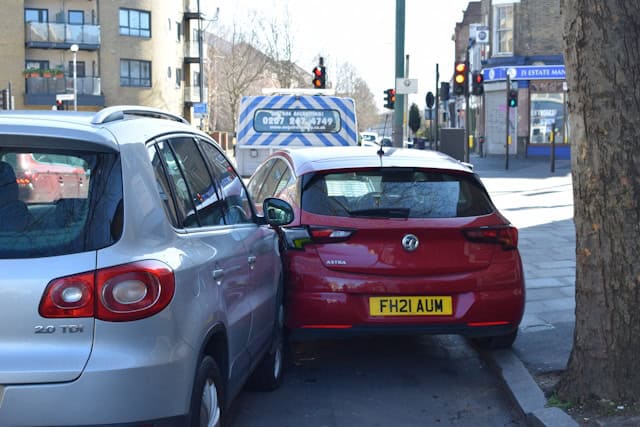
The time immediately after an automobile collision can feel chaotic. Adrenaline rushes through your system, shock may set in, and human nature compels us to act courteously and helpfully toward others present. Yet, during these vital minutes, your words may carry severe legal and monetary repercussions for subsequent insurance filings or legal proceedings. Well-meaning remarks spoken innocently could be manipulated and turned against you afterward.
Knowing which statements to refrain from helps preserve your legal protections and guarantees just payment for your harm and property damage. Below are five particular phrases to always avoid after an auto accident.
My Insurance Will Cover Everything
Making promises about insurance coverage or taking full financial responsibility can create legal obligations beyond your policy limits. Your insurance coverage has specific terms, conditions, and limits that may not cover all damages or circumstances.
Fault determination will affect how insurance companies handle claims. By promising to cover everything, you may inadvertently accept liability for damages exceeding your coverage or situations where you weren’t at fault. Let insurance professionals handle coverage discussions.
I Wasn’t Paying Attention or I Didn’t See You
Despite being briefly unfocused or experiencing reduced sight from climate or street circumstances, acknowledging distraction gives evidence for the opposing side’s insurance provider to reject your case altogether.
Street circumstances, automobile failures, or the opposing motorist’s behavior could have been influential elements you don’t instantly recognize. A skilled Denver car accident lawyer can examine all conditions concerning your collision to construct a solid argument for reimbursement. Yet, they must operate using evidence instead of fighting harmful statements you provided during the incident.
I Feel Fine or I’m Not Hurt
Following an accident, your body’s stress response can suppress pain signals and conceal injury symptoms for extended periods. Significant injuries such as whiplash, concussions, and internal damage often lack immediate warning signs. Any statements you make about feeling well at the accident scene become documented evidence that insurers may later reference to dispute or reduce compensation for your injuries.
Prompt medical evaluation is essential, regardless of how you feel immediately after an incident. Specific injuries only manifest once inflammation occurs or after your body’s protective shock mechanisms subside. Allow qualified medical personnel to assess your condition rather than relying on your judgment during the acute post-trauma period.
Let’s Not Involve the Police
Resolving minor collisions without police involvement might seem convenient, but this decision can create significant problems later. A police report is crucial official documentation, capturing initial assessments of responsibility and witness testimonies. Without this formal record, proving your version of events becomes substantially more challenging if disagreements emerge afterward.
What appears to be a minor incident can sometimes involve concealed vehicle damage or injuries that don’t manifest immediately. Having an official police investigation documented strengthens your position when seeking reimbursement through insurance or if legal proceedings become necessary.
I’m Sorry or It Was My Fault
The most harmful phrases you might speak following a collision include apologizing or acknowledging responsibility. Despite believing you possibly played a role in the crash, expressing “I’m sorry” may be understood as accepting blame. Insurance providers and opposing attorneys will utilize such remarks to place complete fault on you, possibly reducing your compensation by thousands of dollars.
Establishing fault involves complexity and must remain with experts who can analyze all proof, such as surveillance footage, observer accounts, and crash analysis. What appears clear to you during the stressful situation may not represent the true reason for the accident.
Endnote
The key to protecting yourself after an accident is to remain calm, stick to factual observations, and avoid speculation about fault or the extent of injuries. Document everything you can, seek immediate medical attention, and consult with a car accident lawyer who can guide you through the complex process of securing fair compensation for your losses.

